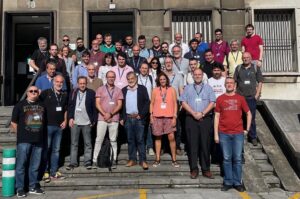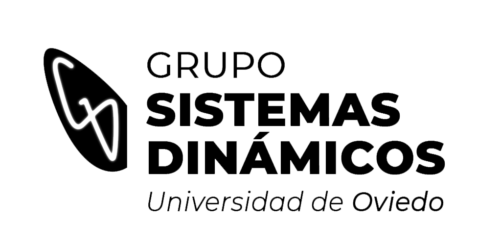The Dynamical Systems Group at the University of Oviedo was created in 1992. Currently our team consists of fourteen people, thirteen of them at the University of Oviedo (Spain) and one at the Universidade Federal Fluminense of Rio de Janeiro (Brazil). We also have an international network of coauthors and friends.

Our lines of research point towards fundamental problems within the field of Dynamical Systems. In particular, we are interested in the study of global configurations susceptible of presenting heterodimenional cycles and strange attractors, placing the emphasis on determining the singularities of smaller codimension from which the global configuration can be generically unfolded. In addition, our group is constantly curious about integrability, limit cycles and structural stability.
The main objectives of our research lines are:
- Non-Uniformly Hyperbolic Dynamics and 2-Dimensional Strange Attractors: Study of heterodimensional cycles associated with geometric structures (called blenders) that involve a high number of new transitions and dynamical complexity; Determination of homoclinic tangencies that explain the persistence of non-hyperbolic strange attractors.
- Singularities and Unfoldings of Vector Fields: Topological classification of singularities, incorporating new 4-dimensional topological types; Identification of those singularities that organize the chaotic dynamics; Analysis of singularities that arise naturally in coupled systems and that are associated with synchronization phenomena; Study of the Hopf-Zero, Hopf-Bogdanov-Takens and 4-dimensional nilpotent singularities.
- Polynomial Differential Systems: Multiplicity of limit cycles; Study of quasi-homogeneous systems in dimension greater than or equal to three; Obtaining algebraic limit cycles in piecewise linear systems.
- Applied Dynamic Systems: Numerical studies to the mechanisms associated with spike-adding phenomena in neuronal models and the analysis of the role that homoclinic bifurcations play in these models; Study of the dynamical systems related to climate processes.
We hope these pages give you an overview about our interests, achievements and activities. Enjoy your visit.
